English Edition

- By CNI
- Category: English Section
- Hits: 347
CNI News
21 November 2025
Political parties are struggling to survive amid ongoing armed conflicts, according to Dr. Aye Maung, Chairman of the Arakan Front Party (AFP), speaking to CNI News.
Intense clashes are occurring nationwide between the Myanmar military and various armed groups, and these groups have warned political parties not to cooperate with or participate in the upcoming elections.
Dr. Aye Maung told CNI that political parties are finding it extremely difficult to operate in such conditions.
He said:“There are many problems even before the election period begins. Especially in Rakhine, the war has caused widespread suffering and the refugees have increased. Because of that, meetings with the people and even gatherings in relatively peaceful areas have become rare. In IDP camps, it is extremely difficult for political parties to conduct activities such as membership registration, mobilization, or discussions. Under such armed conflict, political parties must struggle simply to stay alive. Schools used to be our main places for party outreach, but now even those spaces are unavailable.”
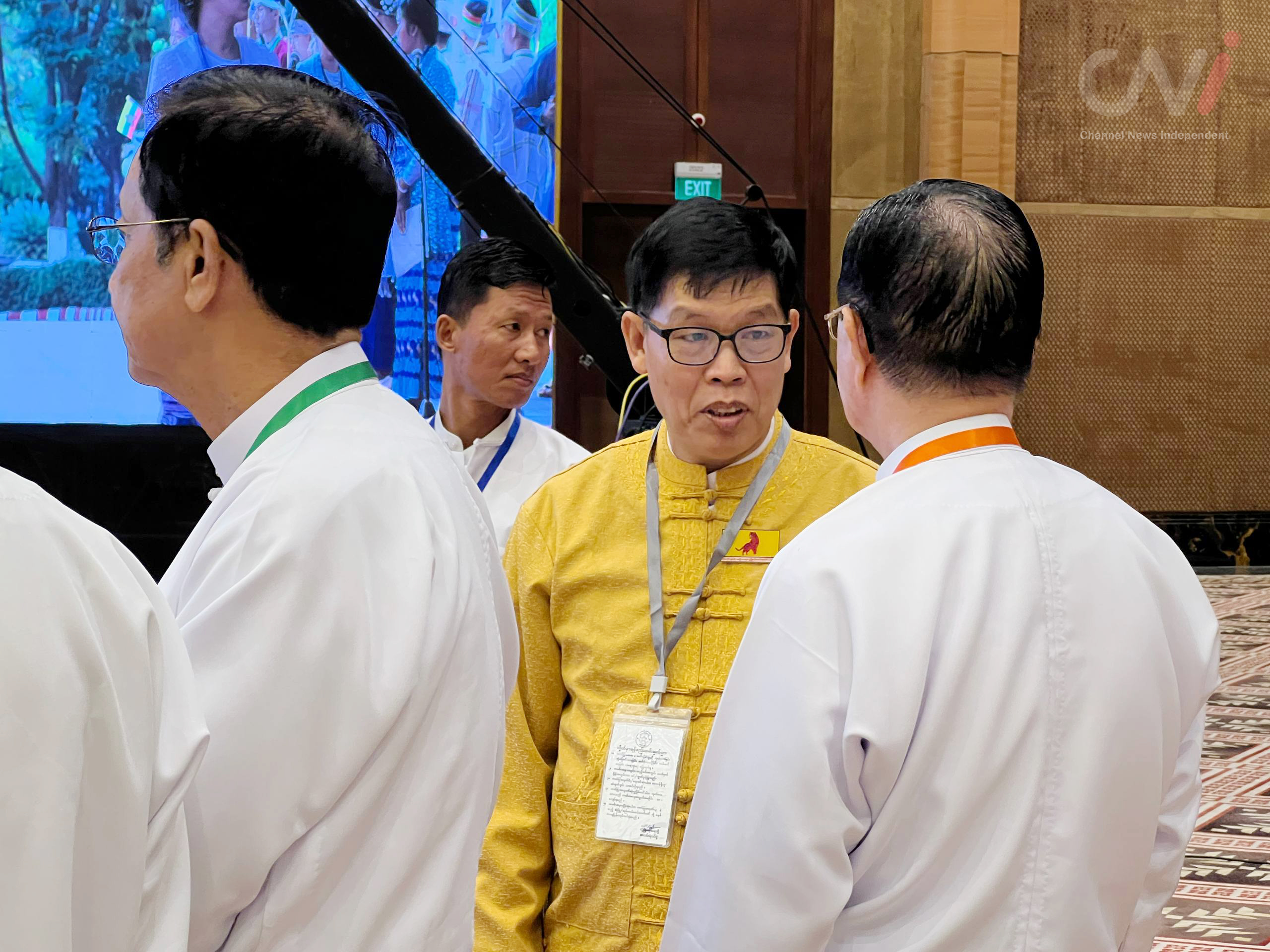
Sai Htay Aung
Meanwhile, armed organizations and Spring Revolution forces have repeatedly declared their intention to disrupt the planned election and to take action against those cooperating with it.
In the current situation, political parties must take risks, and avoiding direct encounters with armed groups is essential, said Sai Htay Aung, Chairman of the Tai Leng (Shanni) Nationalities Development Party.
“When armed groups grow stronger, the battlefield expands. But for the political arena to expand, politicians must take risks. Only when the political space broadens can citizens have security and livelihoods. For that reason, we politicians today must take on that historical responsibility. To expand political space, we have to take risks and work. Information is crucial—since political parties originate from the public, we need to gather information early.”, he said.
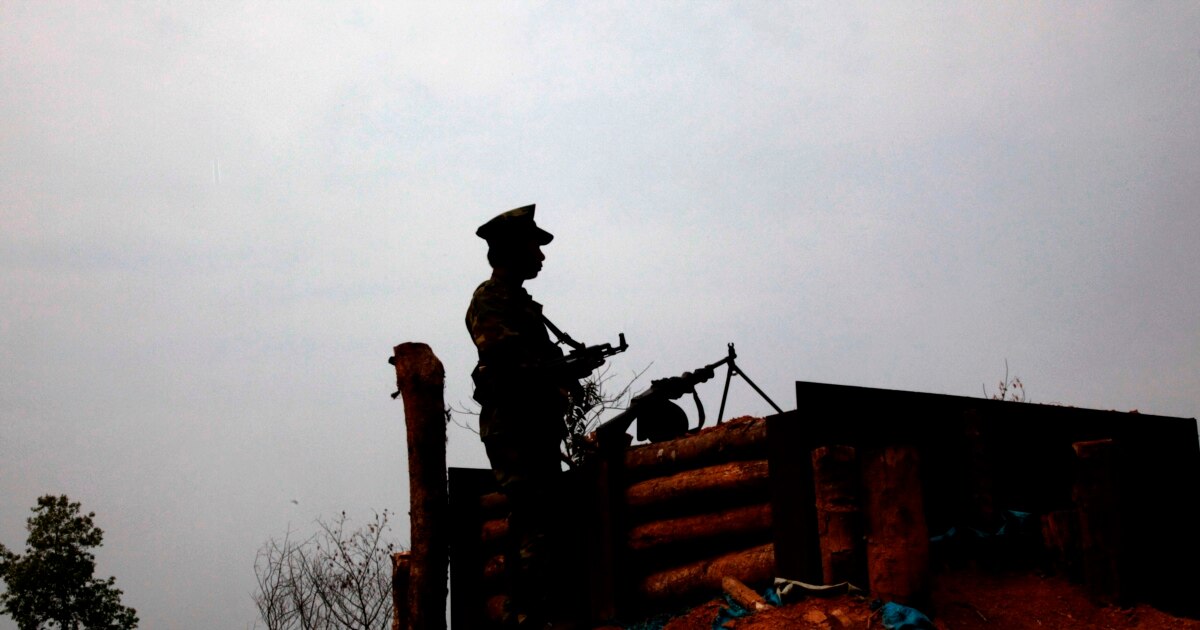
An armed man
“For example, I planned to travel to Myitkyina on the 2nd November. Our party informed the UEC in advance through our party’s outreach page. But then we received information that the KIA had deployed a military column between Myitkyina and Mayan, and that KIA had armed PDF forces in Letpadan, Nat Mauk, and Nansang. When such information reaches us, we must reconsider our plans. Avoiding direct encounters with armed groups is extremely important. Right now, political parties must take risks, but we must work with caution.”, he aid.
Armed conflicts in Myanmar have persisted since shortly after independence in 1948. Until now, no effective method has been found to reduce or eliminate the number of armed organizations in the country.
Despite these challenges, political parties are preparing to contest the nationwide election scheduled for December 28, 2025.

- By CNI
- Category: English Section
- Hits: 380
CNI News
21 November 2025
If Shan people do not protect and safeguard their homeland, Shan State may one day fall into the hands of other nationalities, according to General Yawd Serk, Chairman of the Restoration Council of Shan State/Shan State Army (RCSS/SSA).
He made the remark in his message for the 2120 Shan New Year, issued on November 19, 2025.
“If Shan people fail to cherish and safeguard Shan State, then in the time of our children and grandchildren, other peoples may enter, settle, and live inside Shan State, and our own land will fall under their ownership. If that happens, the lives of Shan people will not only decline but also become humiliating, forcing them to flee to other regions and countries to seek refuge and make a living.”, said General Yawd Serk
Therefore, he urged: “Cherish your history, love your homeland, protect your properties, your farms, and your lands, and collectively safeguard Shan State.”
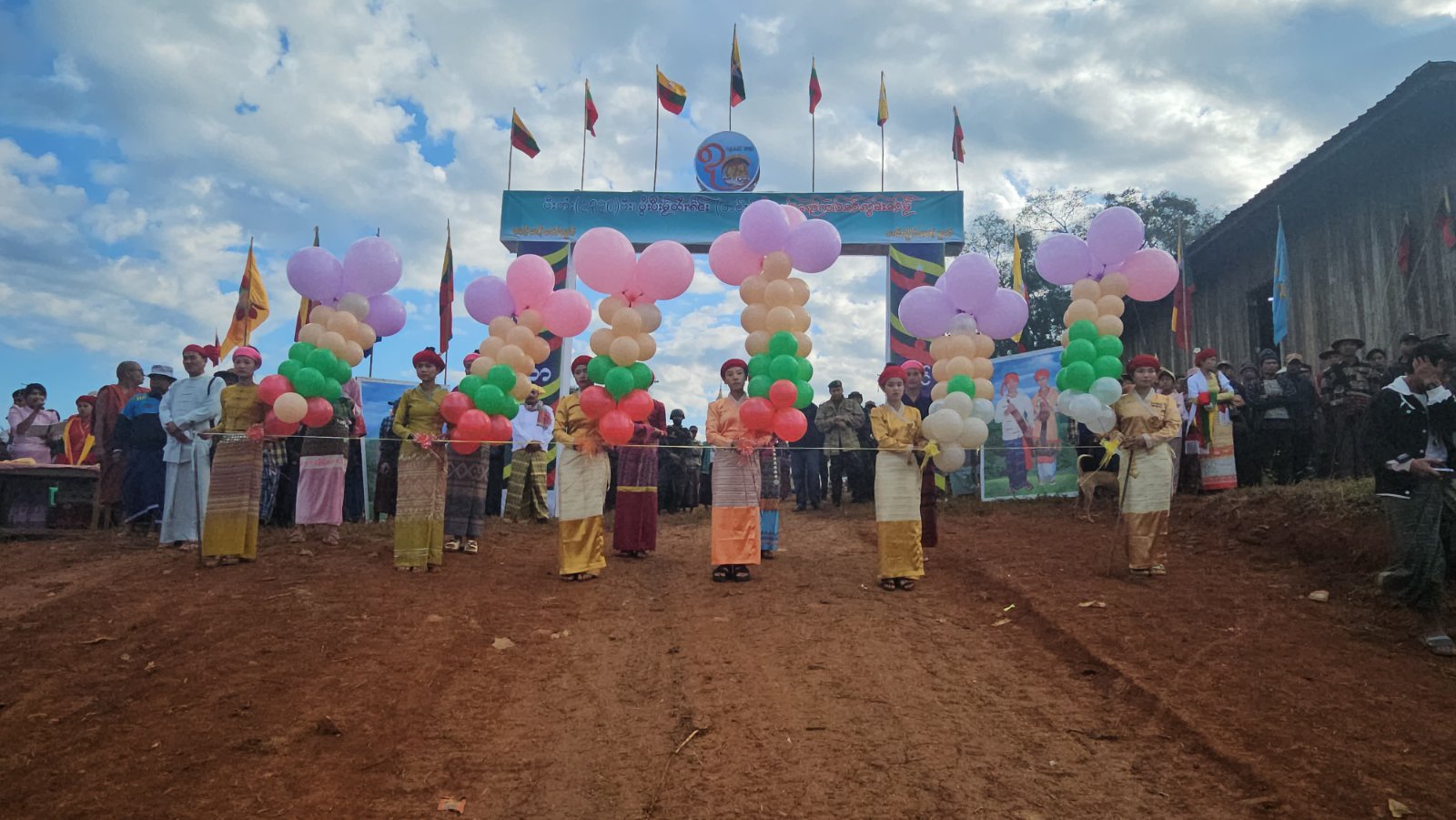
Shan New Year celebrations
Lt-Gen Ywet Sit added, “The only thing that can never be changed or moved is the territory of our homeland. Shan State is a land that has been ruled for generations by Shan kings and Sawbwars (Shan chiefs). Shan State belongs to all Shan people. For it to remain a stable and enduring homeland in the future, we must all come together to protect it.”
Shan State is currently home to multiple armed groups, including the RCSS, the Shan State Progress Party (SSPP/SSA), the National Democratic Alliance Army–Mongla (NDAA), the Myanmar National Democratic Alliance Army (MNDAA), the United Wa State Army (UWSA), the Ta’ang National Liberation Army (TNLA), the Kachin Independence Army (KIA), the Arakan Army (AA), People’s Defence Forces (PDFs), and People’s Militia Forces.
As a result, clashes are occurring both among armed groups themselves and between these groups and the Myanmar military (Tatmadaw), causing hundreds of thousands of civilians to flee their homes.
At the same time, ethnic armed groups and business actors are jointly extracting and selling valuable mineral resources in Shan State.

- By CNI
- Category: English Section
- Hits: 287
CNI News
20 November 2025
The new government that emerges after the elections must work to build national unity capable of overcoming Myanmar’s political crisis, said Dr. Aye Maung, Chair of the Arakan Front Party (AFP), to CNI News.
Phase (1) of the multiparty democratic general election will be held on 28 December 2025 in 102 townships, followed by Phase (2) on 11 January 2026 in 100 townships.
Dr. Aye Maung, who also chairs the Arakan National Party (ANP), told CNI News that the incoming government could plan to prioritize national reconciliation and national unity.
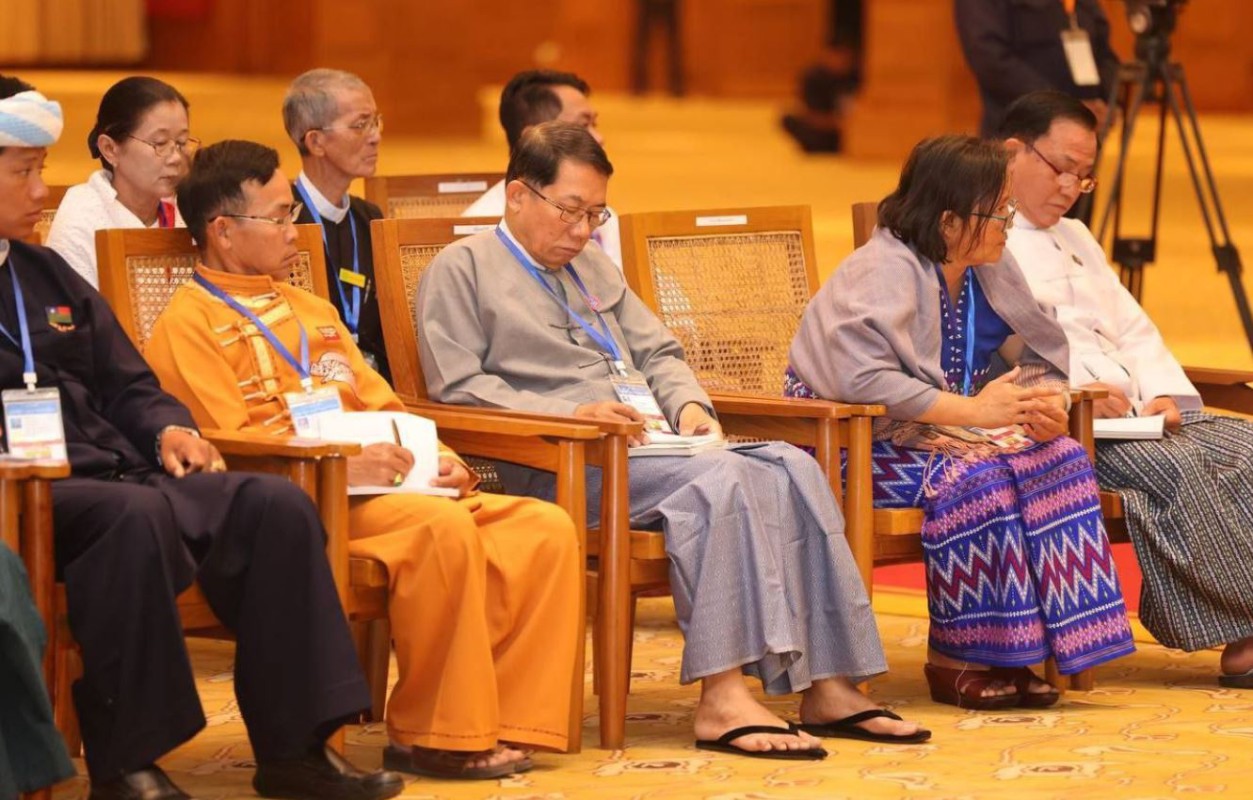
Dr. Aye Maung with political party leaders
He said:“After this upcoming election, the new government that takes office will likely face a more flexible international environment in terms of foreign engagement.Likewise, regarding ethnic issues, resolving armed conflicts, and achieving political progress, the situation will become more solid.There must be a firm and clear commitment to implementing national reconciliation and national unity.We need a strong government.
At the same time, it must tackle external diplomatic pressure and domestic challenges, including international sanctions.When forming the new parliamentary government, it must reshape itself into a stronger government structure than previous administrations.If such transformation is possible, the next five years can be used to rebuild the new nation we are aiming for.”
Shan and Nationalities Democratic Party (SNDP) Chair Sai Aik Paung also told CNI News that the new government must prioritize stability and meet with all stakeholders.
He said:“For us, nationwide ceasefire comes first.If we want peace, we have to meet and negotiate on what kind of federal model we want and how we will move forward.
First of all, we must stop the fighting to prevent further deaths among the people and youth.Once there is a ceasefire, we must talk about how to improve the country together.
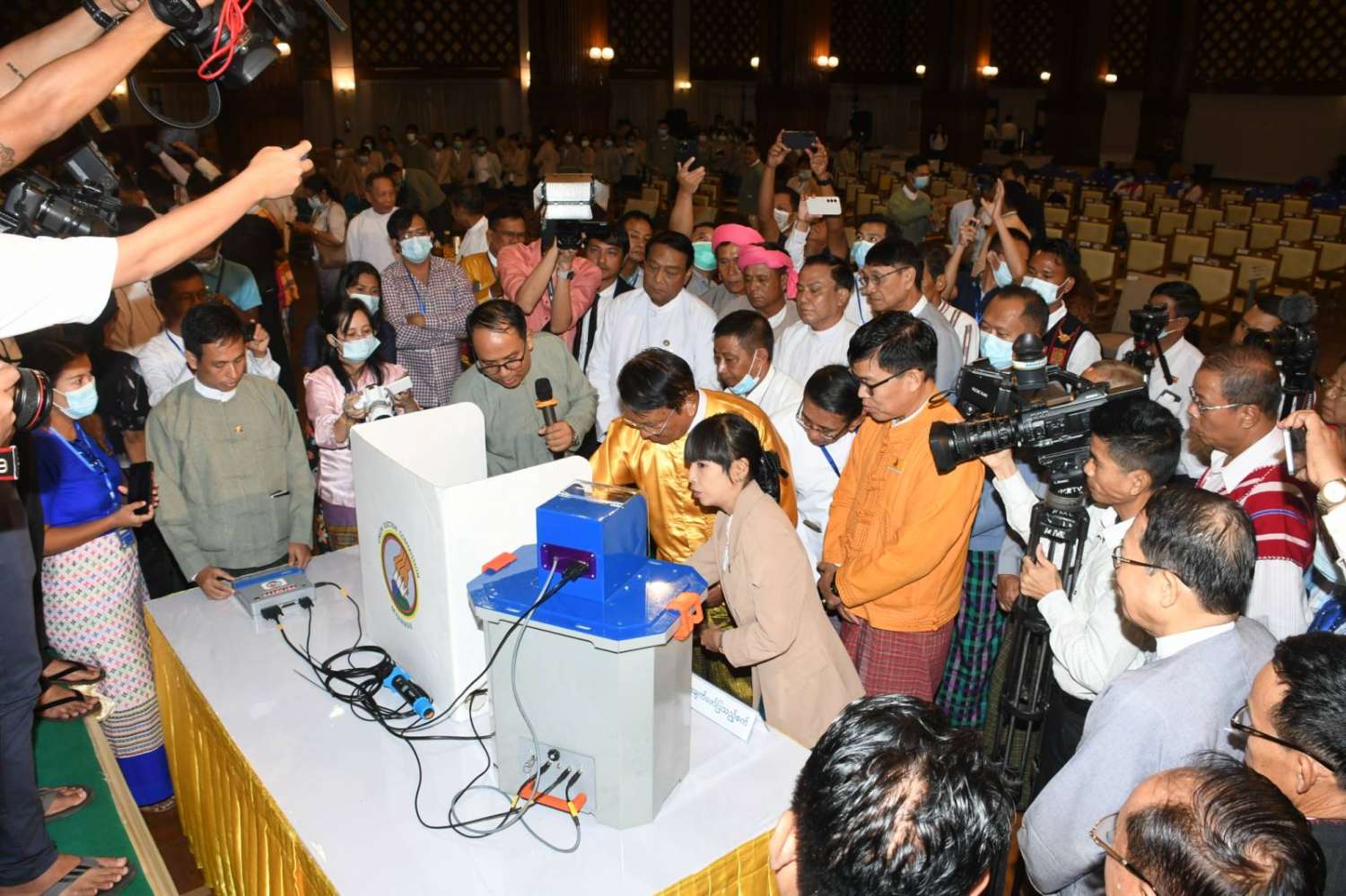
Political party representatives meeting with UEC officials
We must work with genuine love for the country and the Union.We should not blame one another — instead, we must discuss how to achieve long-term peace, long-term development, and long-term stability.Leave the past in the past. Forget it.We need to sit together openly at the table, all groups included, and work toward peace.Otherwise, the country will continue to suffer greatly.”
The Chairman of the State Security and Peace Commission, Senior General Min Aung Hlaing, has stated that state power will be transferred to whichever political party wins the election.
He has also informed the military that after the election, the Tatmadaw will no longer participate in politics and will focus solely on national defense.
Following these statements, the public now hopes that the post-election government might be formed as a national unity government.

- By CNI
- Category: English Section
- Hits: 401
CNI News
20 November 2025
Ethnic armed organizations in northern Shan State may resume military operations depending on the agreements and relations between China and the Myanmar military (Tatmadaw), according to military and political analysts who spoke to CNI News.
Sai Htay Aung, Chair of the Tai Leng (Shanni) Nationalities Development Party (TNDP), told CNI News that if the central government can persuade armed groups to align with it, China’s stance on Myanmar may shift, reducing the likelihood of renewed armed conflict.
He said:“It depends heavily on agreements and relations between the central government and China. At the 10th anniversary of the NCA, Deng Xijun himself said Myanmar’s peace process is important, and peace is essential for the elections. If China says it will support this process, then their policy at the moment is unlikely to change. During such a time, the Myanmar government—particularly the central government—needs to bring the armed groups onto its side.If they all become our people, then no matter how China changes its policy, we will continue following Myanmar’s own policies.”

Leaders of the three Northern Alliance groups
So far, China has not changed its position toward Myanmar’s central government, and has been pressuring armed groups to agree to ceasefires and return territories to the military.
China has also restricted the UWSA from supplying arms, ammunition, and assistance to other armed groups, in support of peace and the reopening of border trade routes and development corridors.
Political analyst Dr. Aung Myo told CNI News that because China has enormous economic interests in Myanmar, any collapse of the central government would hurt China first.
Therefore, he said, China desires stable relations with a strong central government because it cannot afford disruptions to its economic corridors and market access.
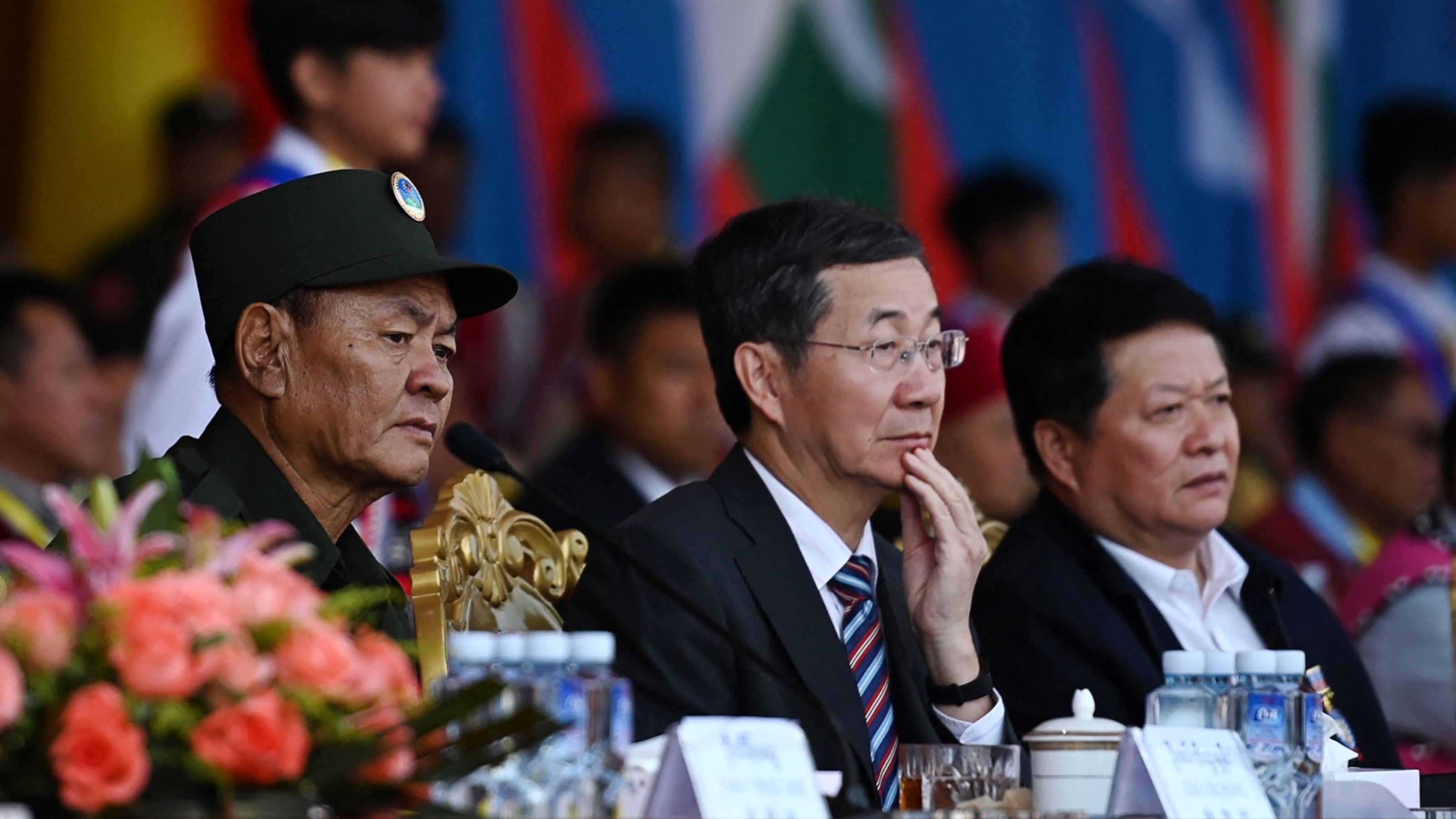
UWSA leader with former Chinese special envoy Sun Guosheng.
Dr. Aung Myo explained: “China were completely unhappy with the current government, but it secretly supported the northern groups, those groups still don’t have the capacity to dominate the whole country.Many of Myanmar’s armed groups are not pro-China. Groups like the KNU and RCSS are not pro-China — they lean toward the American bloc. If the main centers of power collapse — the military or the state — China would suffer first. Its access to the sea would be blocked, its major markets would be disrupted, and its strategic projects would fail. That’s not something China can accept.So China strongly prefers to maintain relations with a strong, stable central government in Myanmar.”
Currently, with China’s mediation, the Myanmar military has secured ceasefire agreements with two of the Northern Alliance groups — the MNDAA and TNLA — and has regained control of certain territories.
Analysts say that along with these ceasefire deals, China is also helping ensure that elections can be held successfully in these areas.
However, if relations worsen between China and the Myanmar military, or if China shifts its policy, the TNLA and MNDAA may resume military operations, analysts warn.

- By CNI
- Category: English Section
- Hits: 381
CNI News
20 November 2025
The Embassy of India in Myanmar announced that it held a federalism-focused workshop on 18 November 2025, inviting ethnic armed organizations (EAOs), political parties, politicians, and representatives from the NSPNC.
From the political parties, U Ko Ko Gyi, Sai Htet Aung, U Khin Maung Soe, Daw Than Than Nu, Dr. Aye Maung, Daw Nan Khin Aye Oo, U Ba Shain, Naing Tala Nyi, U Khin Maung Soe, and U Thet Zaw attended.
Separately, individual politicians - U Htet Aung Kyaw, Daw Sandar Min, Dr. Aung Myo, U An Kawla, and Dr. Nyo Nyo Thin took part.
Leaders from EAOs who joined the workshop were Ye Baw Myo Win, Colonel Saw Kyaw Nyunt, Colonel Saw Kyaw Than Htay, Naing Aung Mangei, and Nan Yin Yin Soe.
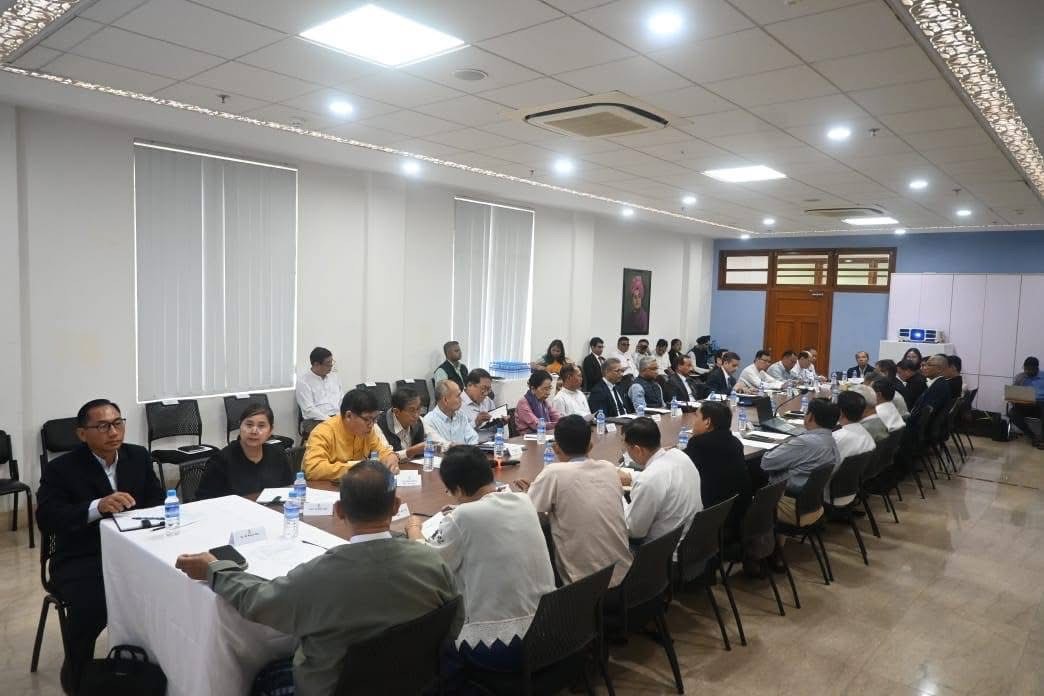
The federalism workshop held at the Indian Embassy on 18 November 2025.
From the National Solidarity and Peace-making Negotiation Committee (NSPNC), member Maj-Gen Soe Naing Oo (Retired) attended, along with retired senior military officers Lt-Gen Khin Zaw Oo and Lt-Gen Myint Soe representing the Tatmadaw (Retired).
In addition, U Hla Maung Shwe from CPR and U Aung Naing Oo, who has been involved in previous peace processes, also joined.
From the Indian side, Ambassador Mr. Abhay Thakur, Executive Director Mr. Sabyasachi Dutta of former Director General of the Assam Rifles Mr. Pradeep Nair, and Ms. Rami Desai from India Foundation attended and led discussions.
It is learned that the workshop included presentations from India on the situation in its Northeast region as well as that of Naga armed groups.

- By CNI
- Category: English Section
- Hits: 202
CNI News
20 November 2025
With Myanmar preparing for upcoming elections, military and political analysts say that parliamentary (Hluttaw) politics should be rebuilt through cooperation between youth and senior generations.
Election Phase (1) will be held on 28 December 2025, followed by Phase (2) on 11 January 2026, and Phase (3) in the final week of January.
These elections are seen as an attempt to overcome the current political crisis and revive parliamentary politics. Many young candidates are expected to contest.
U Ko Ko Gyi, Chair of the People’s Party (PP), told CNI News that if young parliamentary candidates enter Parliament, their strengths, combined with the wisdom and experience of older generations, will be essential in rebuilding democracy.
He said, “When we propose what we believe is right for the country, sometimes it differs from the views of the ruling government or ruling party. For those who believe in democracy, the political platform has disappeared.Once a parliament emerges, voices representing democracy will reach the legislature and gain some space to speak. From there, the political sphere can be expanded. Young people have innovative perspectives and ideas. If we combine those with our experiences, I don’t see a big generational divide. So if young candidates enter parliament, it’s about combining their strengths with the experience we have gained.”
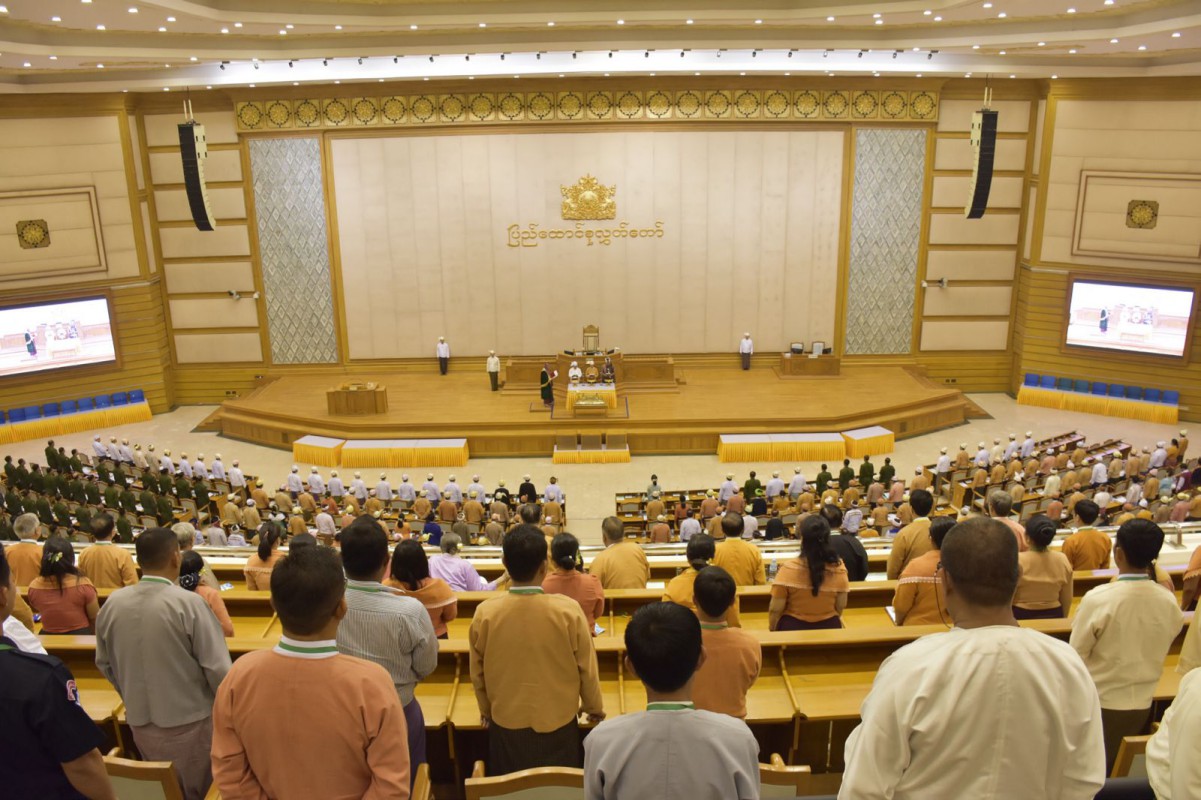
During a parliamentary session.
On 1 February 2021, the Myanmar military ousted the NLD government, claiming it attempted to form a government without resolving disputes over the 2020 election voter list, and declared a state of emergency.
Since then, parliamentary politics has vanished, and the legislative, judicial, and executive powers have been concentrated under Commander-in-Chief Min Aung Hlaing.
As a result, political parties and pro-democracy advocates are making efforts to revive parliamentary politics through elections.
U Ko Ko Gyi told CNI News that those who believe in political solutions and are entering the elections also share a common approach.
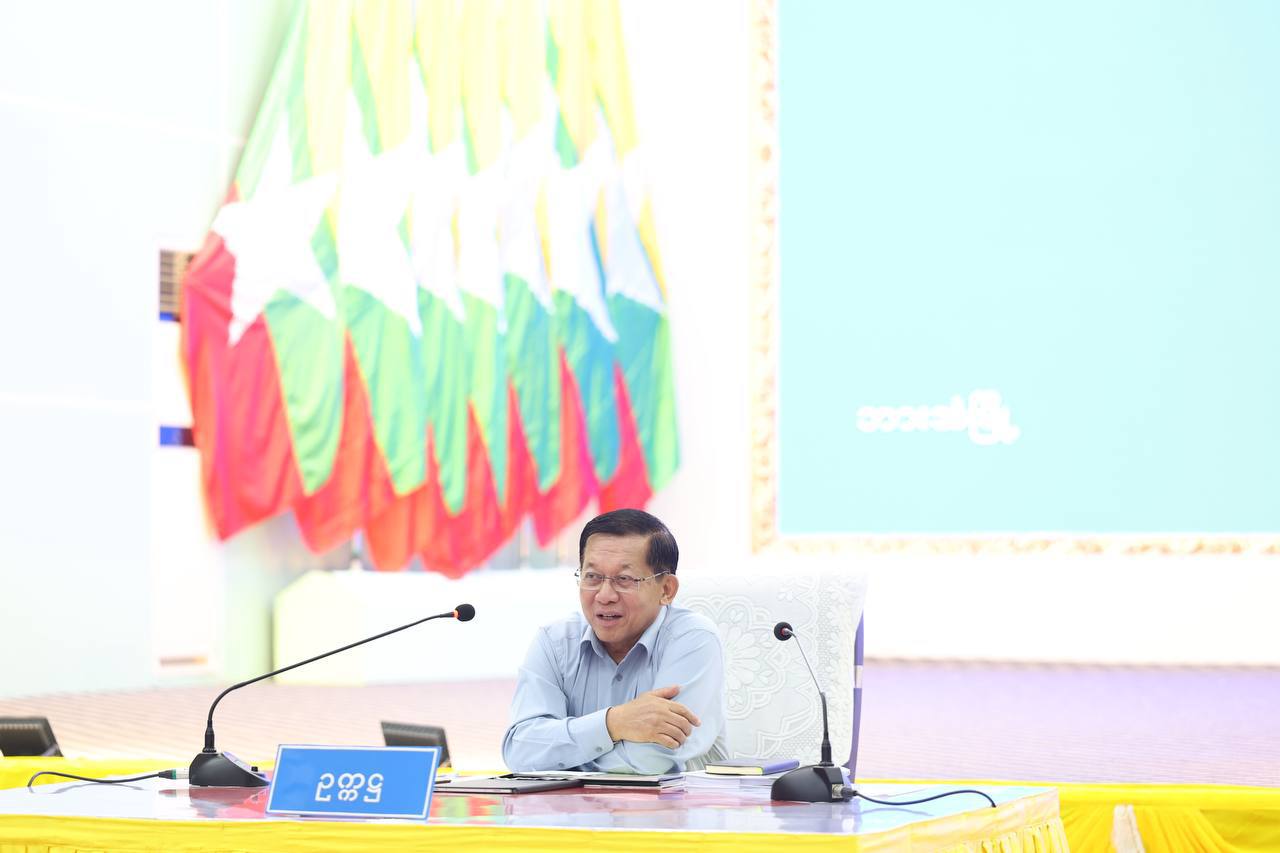
Commander-in-Chief Min Aung Hlaing.
He said, “It’s not only among youth—many citizens are uncertain whether this election will bring meaningful change. Among those participating through elections and political means, there is agreement that problems must be resolved through this electoral and political path. We need to focus on that and build unity. There will always be differences between individuals, but we must negotiate and work through them.”
Commander-in-Chief Min Aung Hlaing has also stated that instead of armed demands, political actors should enter elections under a multiparty democratic system and raise their demands through Parliament. He said he would work toward having a parliament that is respectable.

- By CNI
- Category: English Section
- Hits: 618
CNI News
20 November 2025
In the Mansigyi area of Banmauk Township, upper Sagaing Region, the Shan New Year Festival marking the transition from Maha Shan Year 2119 to 2120 was celebrated on 19 November 2025.
The Mansigyi area where the festival was held is under the control of the Shanni Nationalities Army (SNA), which is providing security in the area.
Banmauk town, along with its southern, northern, and eastern outskirts, is currently controlled by joint KIA–PDF–Kadu forces. These joint forces launched an offensive on Banmauk on 15 September 2025 and captured the town on 20 September.
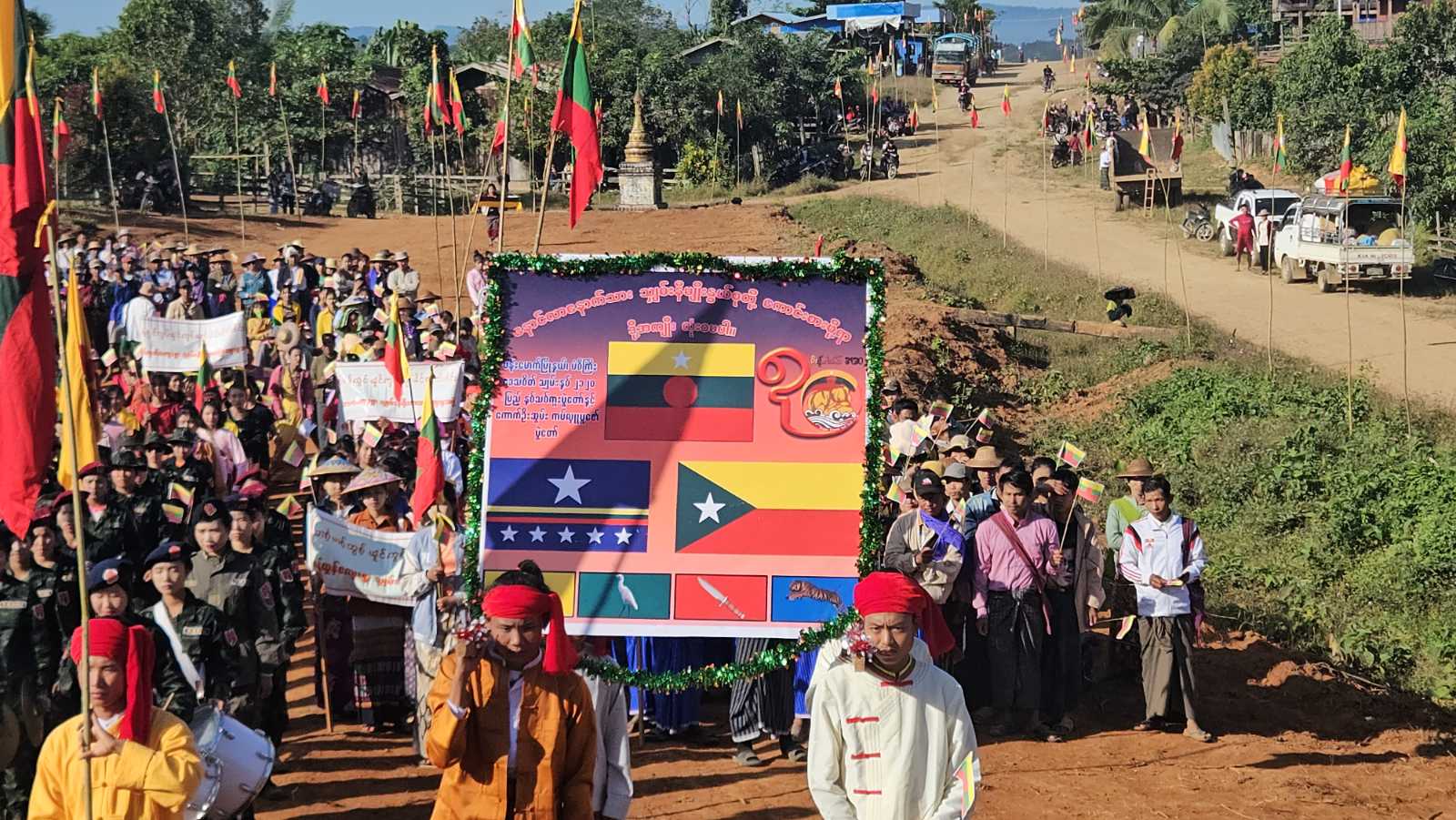
The SNA has since been conducting counter-offensives in an attempt to retake Banmauk, and local residents report that SNA troops have advanced to within one mile of the town.
Daily clashes continue between the SNA and the joint KIA–PDF–Kadu forces across Banmauk Township.
Despite the intensified fighting, Shan communities are carrying on with the traditional celebration of the Shan New Year. The Kadu ethnic group also took part in the festivities.

- By CNI
- Category: English Section
- Hits: 479
CNI News
19 November 2025
Colonel Khun Okkar, Chairman of the Pa-O National Liberation Organization (PNLO-NCA/S), told CNI News that China’s mediation is crucial in the recent tensions between the Myanmar military (Tatmadaw) and the Kokang armed group (MNDAA), which emerged after disagreements over the withdrawal of MNDAA camps.
Military and political analysts report that tensions have risen after the Myanmar military demanded that MNDAA withdraw its outposts stationed outside Lashio in northern Shan State.
Colonel Khun Okkar said the issue depends largely on the specific terms of the agreement arranged by China’s Special Envoy Mr. Deng Xijun, who mediated the handover of Lashio to the Myanmar military.
He said that if the agreement allowed MNDAA to station troops outside Lashio, then the military’s order for MNDAA to withdraw would constitute a breach of that agreement.
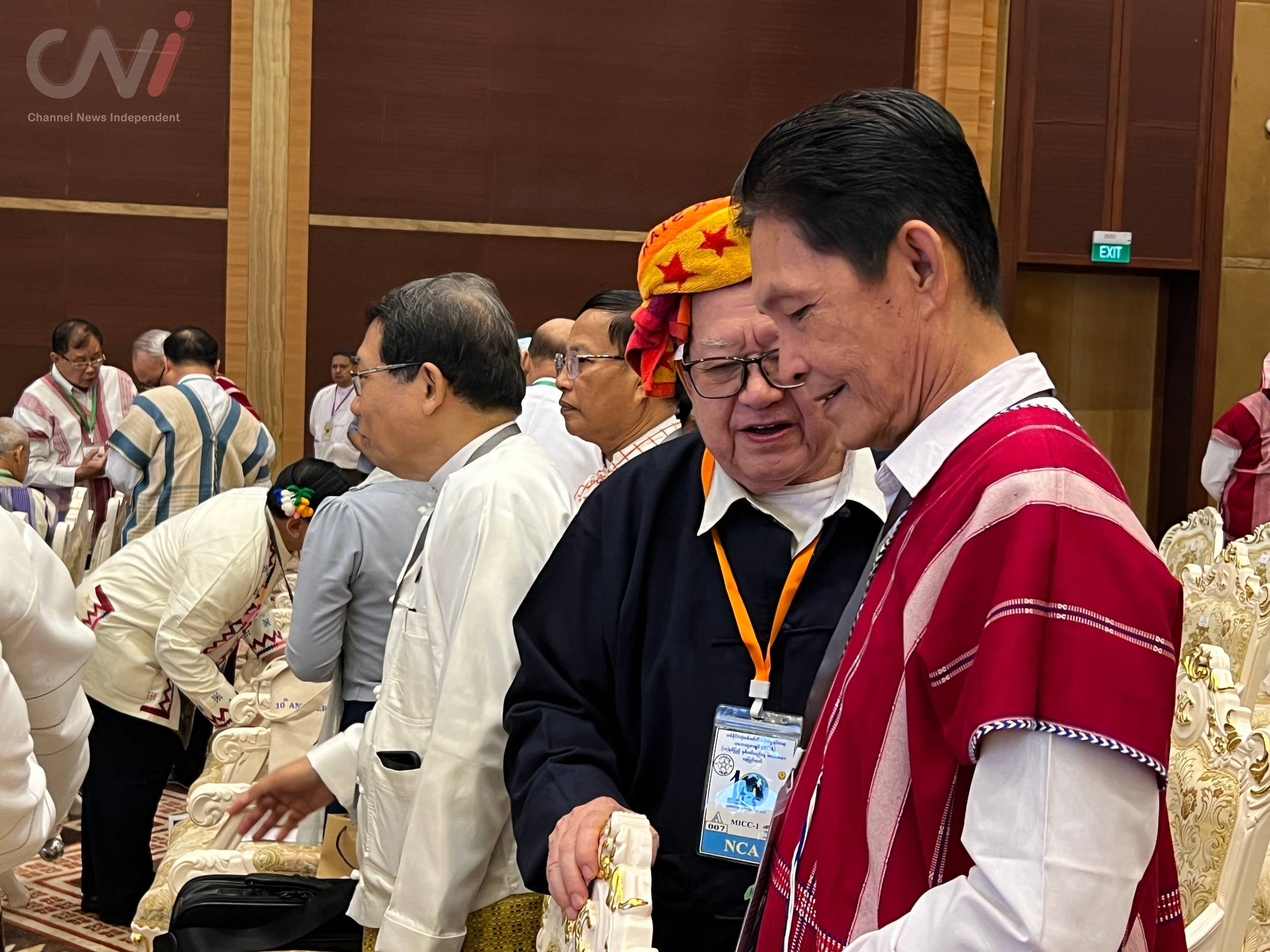
Colonel Khun Okkar
Colonel Khun Okkar said:“So even though Lashio has been handed back, if the agreement allowed MNDAA to maintain troops around the outskirts of Lashio, then the current demand by the military commission to withdraw is a violation of the agreement. We need to look at it based on the original agreement. But since we have not seen the agreement at all, it’s difficult for us to judge. Also, it was China’s special envoy Deng Xijun who led the original agreement. So in the end, the decision lies with the Chinese envoy. China’s mediation is crucial. If China overlooks this issue, armed clashes could break out again — and we cannot predict what might happen. China hasn’t said anything yet, so perhaps they are observing for now. Or maybe the military council is acting beyond the terms of the agreement, or maybe the timeline in the agreement has expired—we don’t know. We never got to read the agreement. So I think we need to listen to China’s position on this.”
Residents of Lashio say that although MNDAA has handed Lashio back to the Myanmar military, MNDAA remains heavily stationed around the outskirts of the city.
Colonel Khun Okkar said the military’s demand for MNDAA to withdraw could be related to ensuring security for the upcoming elections and reopening trade routes, and that both sides should follow the original agreement.
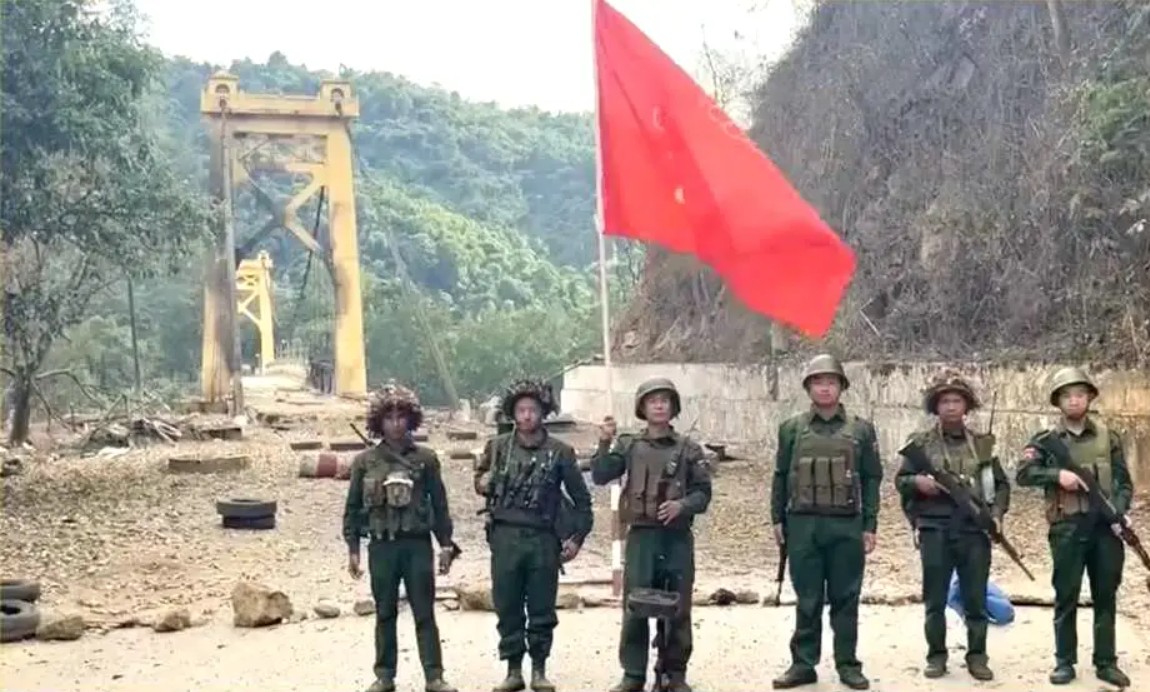
MNDAA troops
He said:“It seems the military is asking this to ensure security ahead of the election. And as trade routes need to reopen, the military commission might be pushing this more firmly for election security and for the resumption of trade flows. Because One Belt One Road–related villages lie on both sides, they may be ordering MNDAA positions to move for that reason as well. MNDAA won’t withdraw unless China intervenes. They will cling to the original agreement. Both sides must follow the agreement as it was.”
Reports emerged that since November 11, meetings between the Myanmar military and MNDAA have been taking place at the Two Elephants Hotel in Lashio.
The Myanmar military captured Hsipaw from the Ta’ang National Liberation Army (TNLA) on October 17 and currently controls the Mandalay–Hsipaw section of the Union Highway. MNDAA controls the Hsipaw–Lashio section of the same road.
Amid escalating military tension, MNDAA has reportedly released over 200 people detained.

- By CNI
- Category: English Section
- Hits: 309
CNI News
19 November 2025
U Ko Ko Gyi, Chairman of the People’s Party (PP) told CNI News that whoever leads and forms the next government after the upcoming elections, it needs to take the form of a national unity government.
With the national elections set for the end of this year, people are eagerly watching to see what kind of government might emerge in Myanmar.
U Ko Ko Gyi said, “Since the elections have not yet been held, we cannot say anything in advance about the results. But whoever gets the mandate to lead and form the government— who they may be— my view remains the same as what I said even before the 2020 election. The incoming government should be a kind of national unity government. It should include the right individuals and ethnic groups, working together to collectively solve the country’s problems.”
The form of a government, or the model by which a nation is governed, refers to the political framework that allows a government of a federal union to exercise authority over political actors within parliament (Hluttaw).
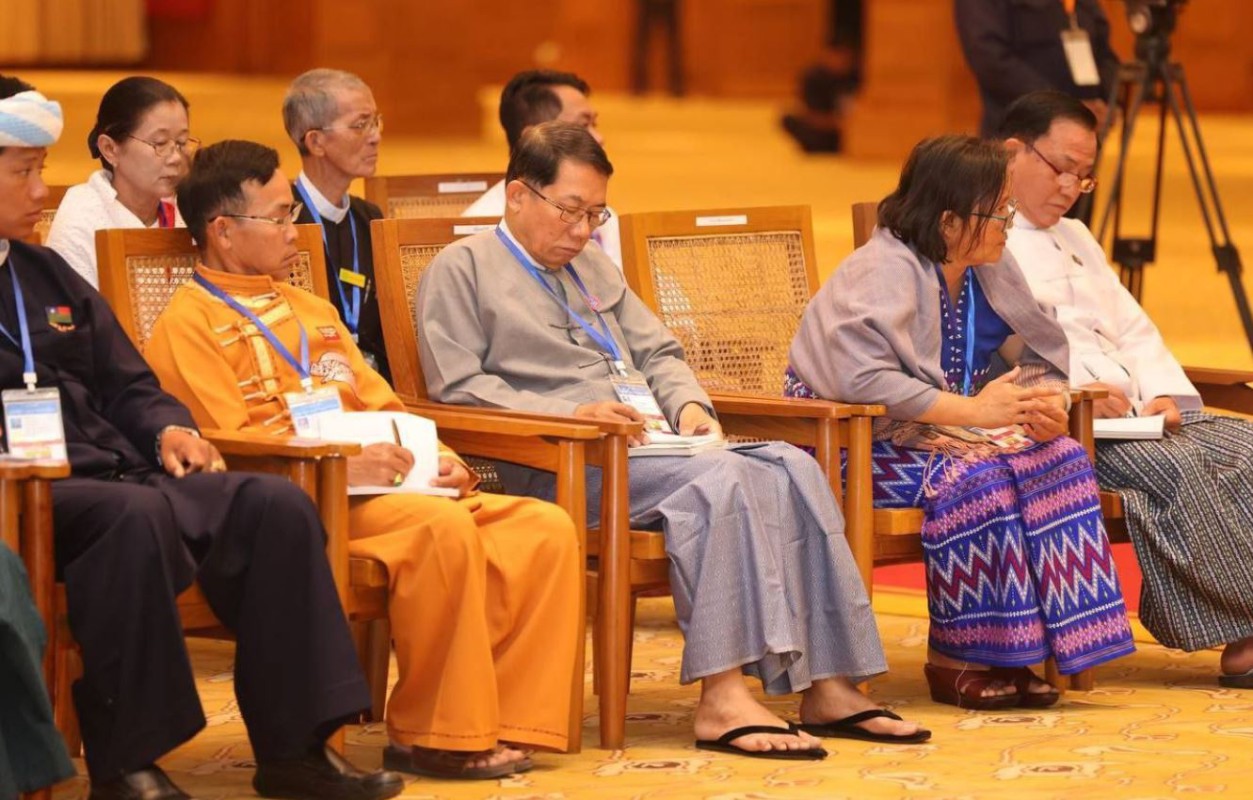
Political party leaders
Political analyst U Htet Aung Kyaw told CNI News that the next government needs to be people-oriented, as the country is currently facing a situation brought about by a lack of national unity.
He said, “Most importantly, we need a parliament that is accountable to the people. We need a government that is accountable to the people. We need a government that can deliver clear and positive results through meaningful reform. This country is made up of many ethnicities and religions. Under these circumstances, it is extremely important for everyone to coexist in harmony and unity. Because our country lacks unity, we are in the current situation. So if a government that includes all sides—one that can stop the ongoing disputes—emerges, that would be a very promising path forward.”
It is expected that the new government formed after the upcoming elections will be led by the military and the USDP. However, political observers say that including representatives from other ethnic political parties could help ease the current political crisis.
Spokesperson U Thein Tun Oo of the Union Solidarity and Development Party (USDP) told CNI News that the type of government that emerges will depend on the mandate entrusted by the people.
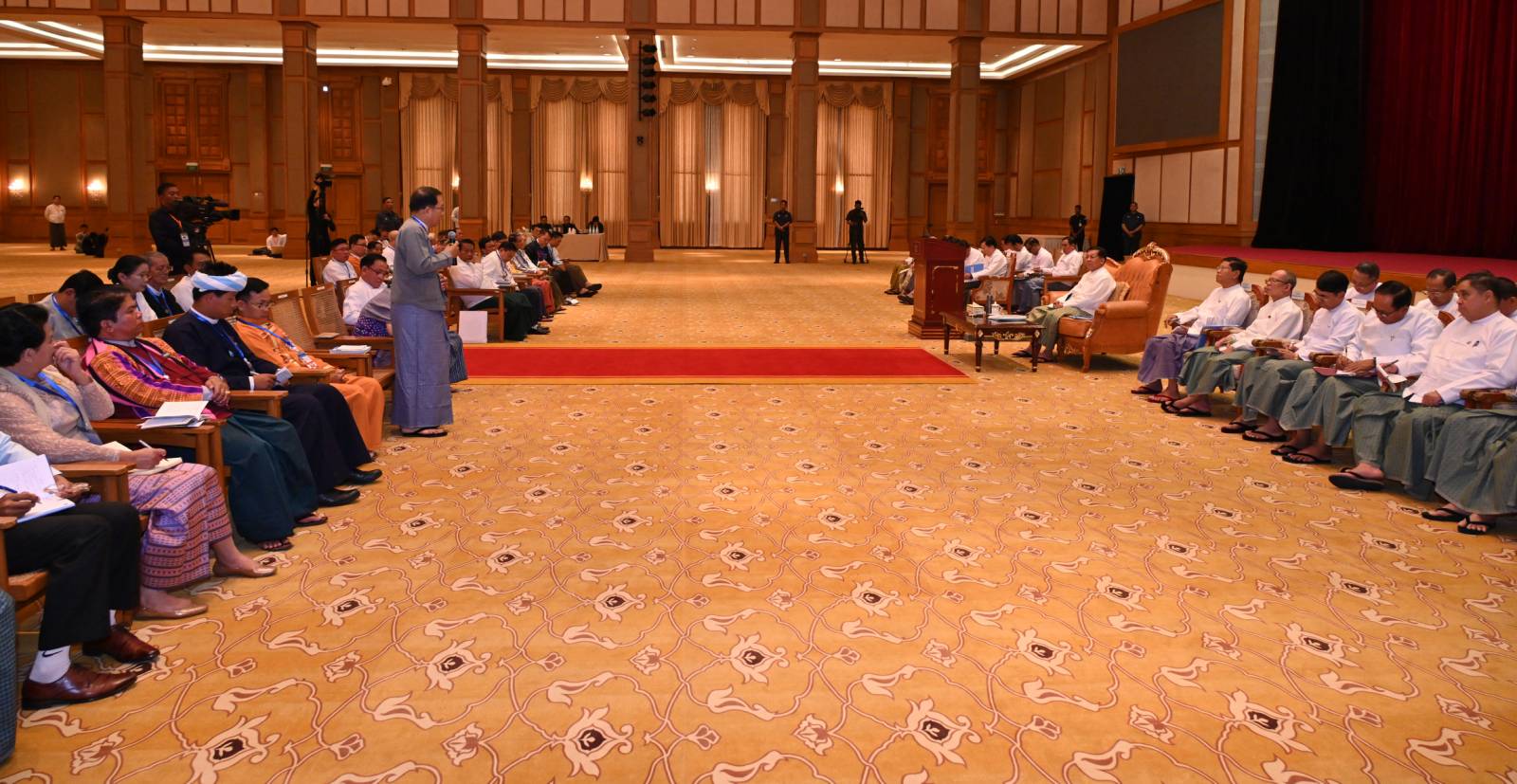
Senior General Min Aung Hlaing meeting with political parties
He said, “It depends on the will of the people who cast their vote. Whether the people give all their support to a single party or distribute their support proportionately—that will determine the nature of the new government. That is the defining factor. Many other considerations certainly exist, but since it is the people who delegate authority, they are the key. It depends on the seats won and the composition of the parliament. What should or should not happen must be considered based on current circumstances and the future.”
The Chairman of the State Security and Peace Commission, Senior General Min Aung Hlaing, has said that state power will be transferred to the political party that wins the election.
However, both domestic and international observers have pointed out that the upcoming election in Myanmar is largely symbolic, and that regardless of the results, the outcome will be a military-led government.
Political analysts, nonetheless, say that in order to address Myanmar’s political crisis and ongoing armed conflicts, the next government needs to take the form of a national unity government.



